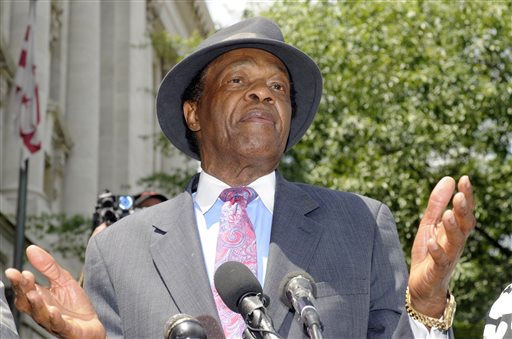NASHVILLE - Civil rights champion the Rev. James Lawson says Marion Barry was among the pioneers of the movement and his activism was a bright spot in a troubled political career.
Lawson spoke to The Associated Press after hearing about Barry's death on Sunday at the age of 78.
Lawson led students in non-violent demonstrations that culminated in the 1960 sit-in protests that led to the successful integration of lunch counters in Nashville. He was also one of the drafters of the mission statement for the Student Non-Violent Coordinating Committee. Barry became the group's first national chairman in 1960.
Lawson said the former District of Columbia mayor may not have the same profile as civil rights leaders like Diane Nash and John Lewis, but that Barry was one of the movement's very first leaders and a strong proponent of change.
"He was one of those who had the courage almost at the beginning to admit that what we were living under simply was not right," Lawson said.
Barry was raised in Memphis.
While an undergraduate at LeMoyne College (now LeMoyne-Owen College), Barry picked up the nickname "Shep" in reference to Soviet propagandist Dmitri Shepilov for his ardent support of the civil rights movement.
Barry did graduate work in chemistry at Fisk University in Nashville, earning a master's degree. He left school short of a doctorate to work in the civil rights movement.
Barry brought his fierce advocacy to D.C. to support the fight for local residents to be freed from the rule of Congress to manage their own city affairs, and eventually became mayor.
However, in 1990, he was arrested in an FBI sting operation after being caught on video lighting a crack pipe. He was convicted and sentenced to six months in federal prison.
After his release, Barry got back into politics and went on to win a fourth-term as mayor.
"The whole business of drugs and what not in my judgment does not deny the fact that he was a strong organizer of people, and he sympathized and empathized with people in their plight," Lawson said. "Along the way, he did a lot good on behalf of people."

